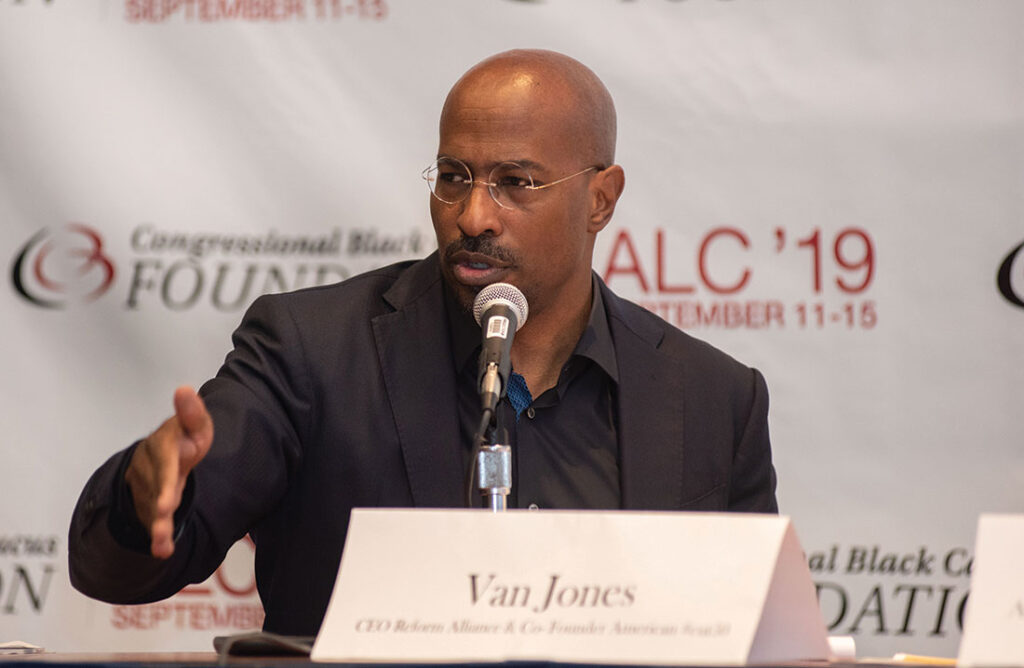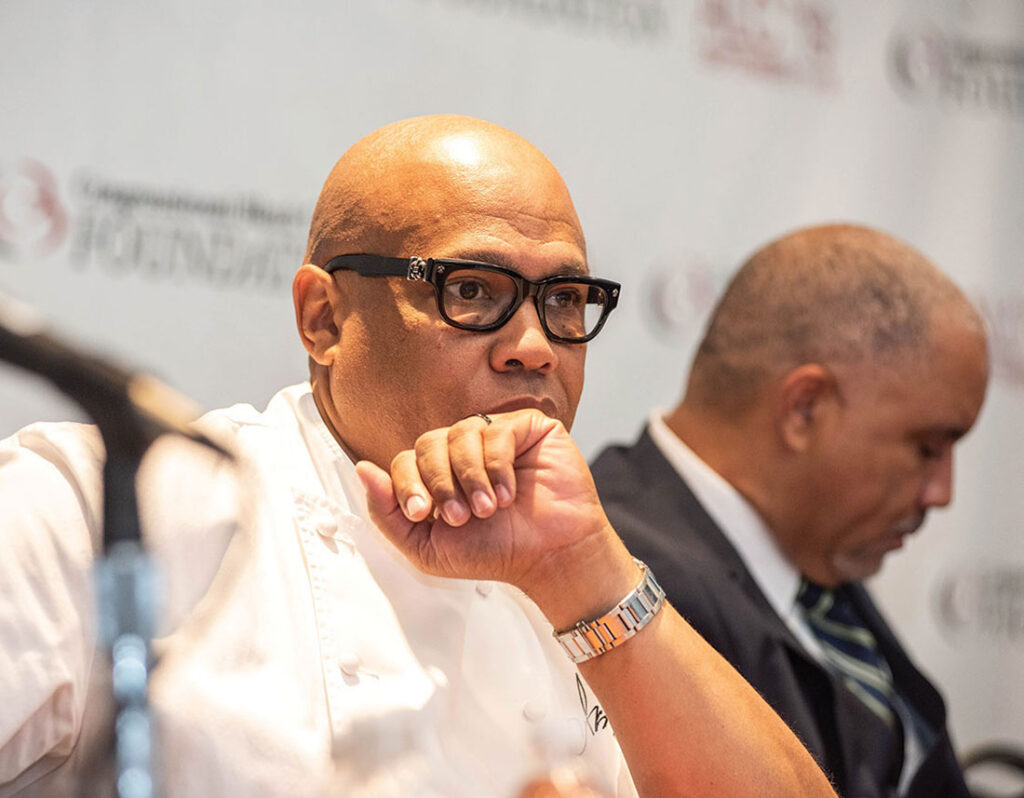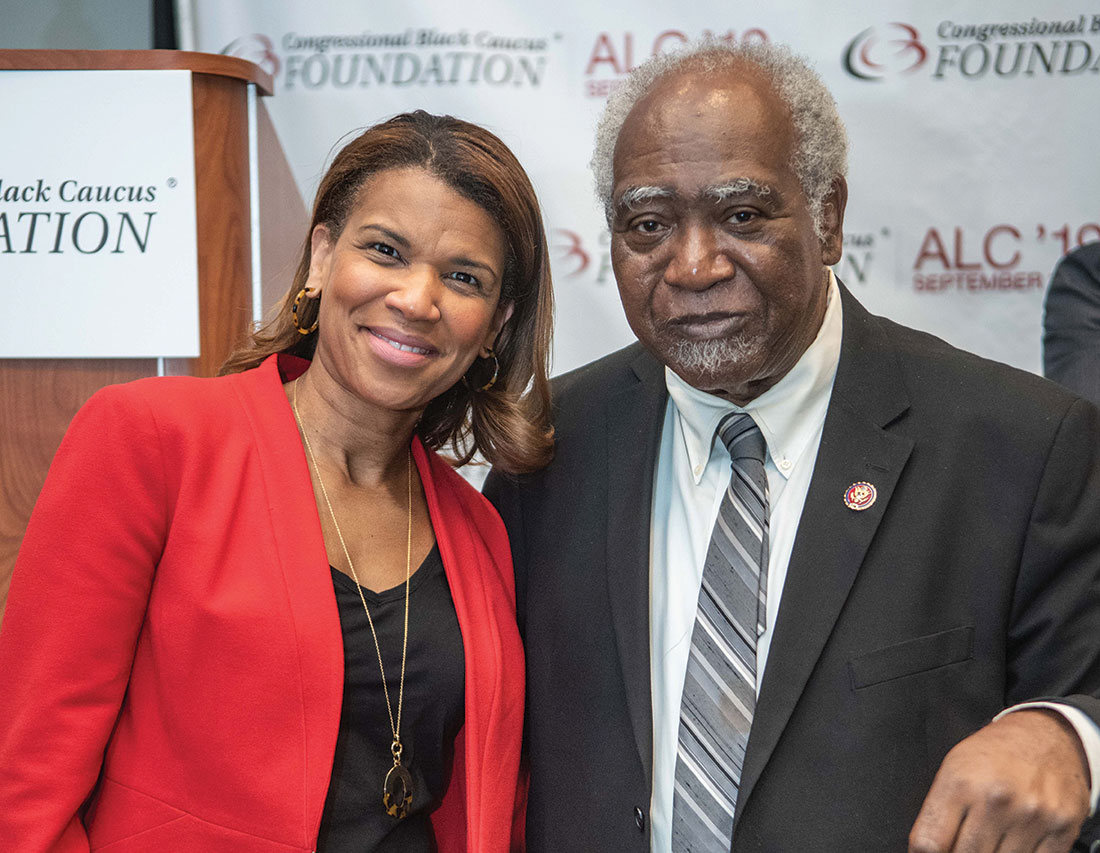While there’s been progress in recognizing the need for outreach to returning citizens reentering their communities following incarceration, more needs to be done to break the revolving door cycle before it starts, according to Illinois Rep. Danny K. Davis.
“The whole business of reentry has come a long way and people are beginning to look more comprehensively at reentry than in the past,” said Davis (D-Ill.). But in a political climate where African-American men continue to be disproportionately affected within the criminal justice system and black women are the fastest growing segment of this population, Davis pointed out: “We have not done the preventive work that needs to be done.”
“For African Americans, there will never be quality of life and equity of opportunity as long as the number of people who are black in this country are suffering from incarceration,” he said.
Davis tackled the issues surrounding mass incarceration and criminal justice reform during the 49th Annual Legislative Conference of the Congressional Black Caucus Foundation, where he hosted the “Returning Citizens, Renewing Humanity, Reinventing Lives, Reinvigorating Our Economy” session on reentry. The Sept. 14 event drew a spectrum of attendees, including those working at the forefront of these issues — from grassroots advocates to legislative leaders. This year’s panelists included celebrity chef Jeff Henderson, motivational speaker and criminal justice advocate Kemba Smith, and CNN political commentator Van Jones.

The Big [Reentry] Picture
Any discussion of life after prison is incomplete without examining the meaning of reentry. “Full reentry is comprehensive,” said Alfreda Robinson, president of the National Bar Association, while explaining that those reintegrating back into society should have rights such as the ability to “vote fully.”
“It means you come back home to us…. We need daddies and mommies being back with their children, [and] we need you in our communities,” she told the crowd, gathered inside a conference room of the Walter E. Washington Convention Center in Washington, D.C.
Widely known for his strong voice on social justice, Jones said that from the decades of “building up the pockets of the incarceration industry, we now have the biggest peace time prison population in the United States in the history of the world, times two.” It’s a scenario that helped to fuel the creation of #cut50, a national bipartisan initiative aimed at reducing the prison population while increasing community safety, which Jones co-founded.
In remarks, Jones credited bipartisanship for the passage of a 2018 criminal justice reform bill that “wasn’t as great as the bill Obama would’ve gotten done, but it was a good bill.” Still, he noted, there is more to be done: “The question now is what we’re going to do with this space. Passing one bill doesn’t mean anything, you’ve got to implement it.”
He explained that #cut50, in turn, has produced the report “First Step to Second Chances” to decipher how to navigate life after release and “put the power in our hands” to get things done the right way since passing the First Step Act. Jones also highlighted the efforts of the celeb-backed REFORM Alliance, where he serves as the startup CEO. The prison reform organization includes founding partners like Meek Mill and Jay-Z.
“We’re saying when people come home, they should hit a springboard to success and not a trap door to failure,” Jones said, noting the alliance’s work in Pennsylvania to pass a bill to clean up the probation system there and get prison reentry on track. “Our community comes first,” he continued, “people behind bars come first.”

Pulled ‘Out of the Muck’
Before becoming Chef Jeff, Jeff Henderson went to prison for committing infractions against society, said Davis in his introduction. However, Henderson would go on to pull himself “up and out of the muck and miry clay,” the congressman said, something that he would inspire others on similar life paths to do.
Henderson shared that a single mother raised him and his sister on government assistance. She was uneducated and didn’t tell him why he had to go to school every day. But he remembers clearly being that little boy with the Coke-bottle thick glasses who sat behind the bus driver each day because it had the largest window for him to look out on suburbia — a different picture from his daily environment. “I knew something was wrong, but it sparked my dream,” he said.
In reflection, Henderson, now 55, characterized himself among the intelligent “profound streetpreneurs” and “brilliant thinkers” who were unconscious participants in what’s now called modern day mass incarceration. “I used to cook crack,” he said, drawing a “wow” from the crowd. “I used to take kilos of pure 99.9 percent Peruvian and Columbian cocaine” with the tools of the trade — including baking soda and pots — and check into the motels in Southeast San Diego to cook.
Then came a life-saving moment. “I was blessed with a federal indictment in 1987,” Henderson said. It was during this time that he discovered two things: books that taught him about black intellectuals, and a passion for cooking.
“I began to see the world different,” he recalled.
Henderson started a side hustle in prison, a catering company fueled by his work as head inmate cook. With stolen items from the kitchen — from red onions to extra chicken — he created top ramen concoctions back on the cellblock. He also honed his public speaking skills in Toastmasters.
Henderson ultimately transferred these business traits to a new endeavor after being released. “I had a dream to become a chef,” he said. And he did just that, becoming the first African-American executive chef of a multi-million dollar restaurant at Caesars Palace and the Bellagio in Las Vegas. “I mastered getting employed as a convicted felon,” Henderson said.
While building upon his own culinary success, he strategically hired other formerly incarcerated individuals. “I clean them up and give them the do-over because I speak the language and I’ve walked in their shoes. I have a prison GED but never been to college,” he explained. “Second chance employment is important.”

An Empowered Voice
Meanwhile, the name Kemba Smith is to many synonymous with the harsh mandatory minimums accompanying first-time, nonviolent drug offenders. As a college student at Hampton University, Smith fell in love with a drug dealer who was later murdered. And although she didn’t “handle, use or sell the drugs that were involved,” her relationship with him led to a 24 1⁄2-year sentence in federal prison. “I turned myself in while seven months pregnant and gave birth to my son while incarcerated,” she said.
Throughout the more than six years in prison before her sentence was commuted by President Clinton in 2000, her parents were a source of steadfast support that included caring for her son. “A lot of people in the system are not that fortunate to have family members who can take their children,” she said.
After returning home, Smith’s first priority was being a mother. But she also focused on sharing her story to keep what happened to her from happening to another young woman. “Most grown people wouldn’t want to talk about the poor choices they made, the abusive relationship, their prison experience … but I came out running with that, although I was on probation,” she said.
At the time, Smith noted that criminal justice wasn’t a topic people discussed. Still, it didn’t stop her from advocating for change on drug laws and sentencing guidelines, among other issues, as she continues to work with reentry and criminal justice organizations.
“Reentry to me was to prevent the prison-to-school pipeline and to share my story,” she told the audience. “It’s so hard for a person coming out of prison to let go of those shackles.”
But she emphasized that regaining a sense of community and belonging is important to moving forward, and reclaiming one’s voice in the process. “Formerly incarcerated people are now starting to get a seat at the table,” Smith said, “and influencing change.”

